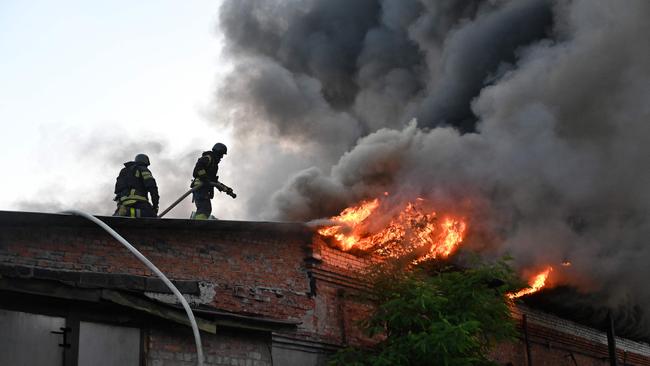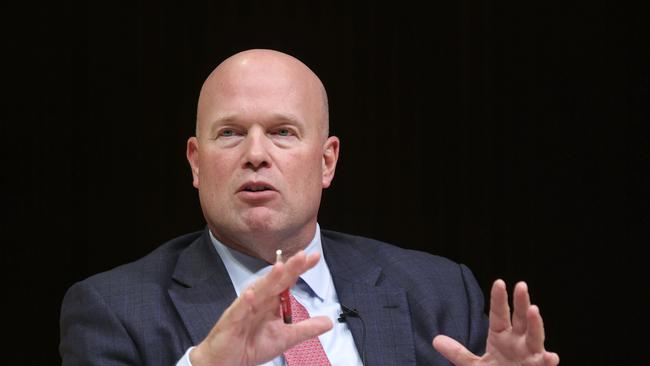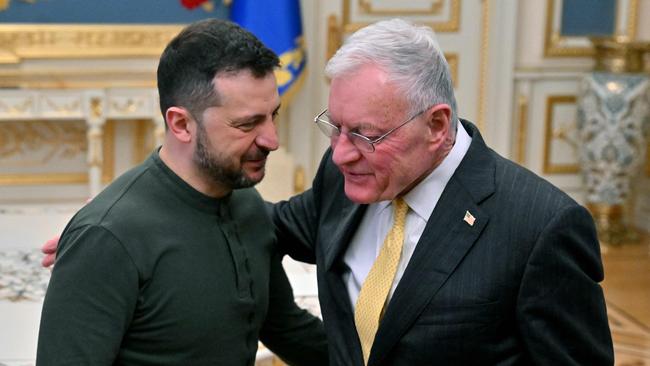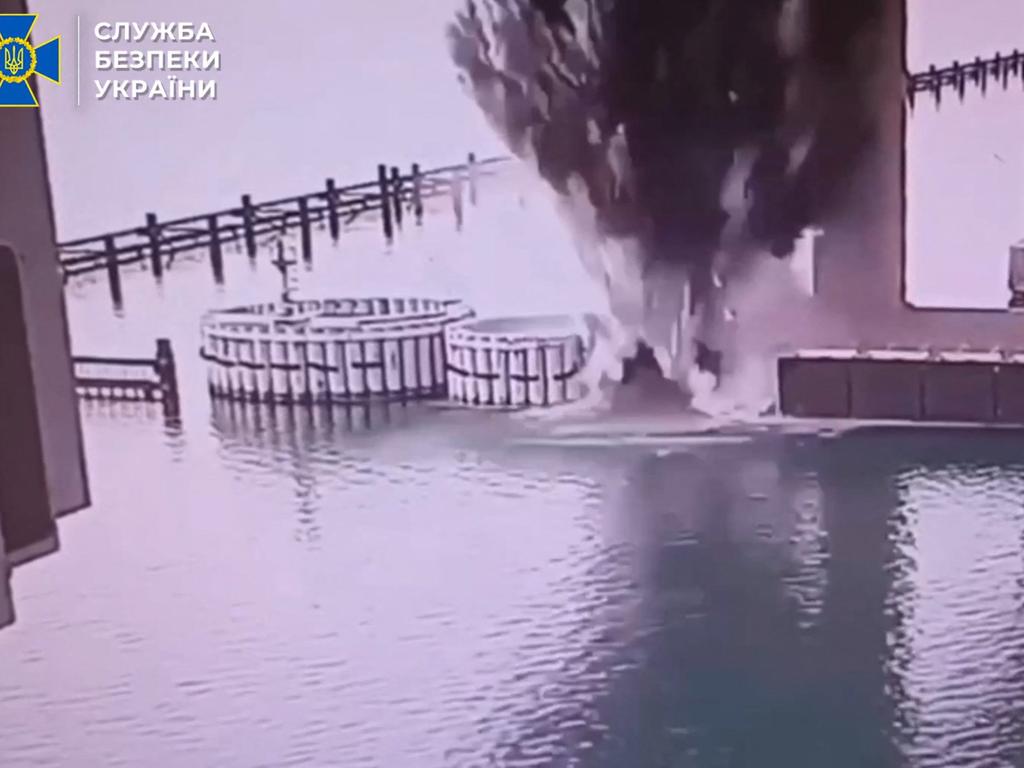‘Not a suggestion’: US demands NATO allies commit 5pc of GDP to defence
The US ambassador to NATO warns Moscow is already gearing up for its ‘next move’ beyond Ukraine.

NATO’s push to ramp up defences must outstrip Russia’s rearmament drive as Moscow is already gearing up for its “next move” beyond Ukraine, the US ambassador to the alliance said.
The warning came ahead of a meeting of NATO defence ministers Thursday that will seek to forge a deal on hiking military spending for a summit later this month.
“The urgency of this moment is undeniable as the Russia-Ukraine conflict grinds on, Moscow is already preparing for its next move,” US ambassador Matthew Whitaker told journalists.
“We are already seeing the Kremlin aims to rebuild its military. NATO allies must outpace Russia. We have no other choice. Let me be clear, the time is now.
“The United States expects every ally to step up with concrete plans, budgets, timelines, deliverables, to meet the five per cent target. This is not going to be just a pledge. This is going to be a commitment. Every ally must commit to investing at least five per cent of GDP in defence and security, starting now again, this is not a suggestion,” he said.

US President Donald Trump has called on Washington’s allies to commit to spending five per cent of their GDP on defence.
NATO chief Mark Rutte looks on track to secure a compromise deal agreement at the upcoming summit in The Hague for 3.5 per cent of GDP on core military spending, and 1.5 per cent on broader security-related areas such as infrastructure.
NATO ministers will sign off at their meeting in Brussels on new capability targets for the weaponry needed to face the threat from Russia.
It comes as Donald Trump’s Ukraine envoy Keith Kellogg said Ukraine’s dramatic drone attack on Russian bombers at the weekend has increased the risk of escalation to “unacceptable” levels.
Kyiv conducted a massive strike on Russian military air bases in Siberia on Sunday, saying it had destroyed several Russian nuclear-capable bombers worth billions of dollars.
“The risk levels are going way up,” Mr Kellogg told Fox News on Tuesday (Wednesday AEST).
“When you attack an opponent’s part of their national survival system, which is their nuclear triad, that means your risk level goes up because you don’t know what the other side is going to do.”
The triad refers to a country’s nuclear strike capabilities across land, air, and sea.
“But any time you attack the triad, it is not so much the damage done on the bombers … it’s the psychological impact you have,” said Mr Kellogg, adding that it showed Ukraine “is not lying down on this.”
The attack also showed Ukraine can raise risk levels “that are basically to me, they’ve got to be unacceptable.”

Since Russia invaded Ukraine in February 2022, it has flexed its nuclear might to deter Kyiv’s allies from intervening militarily.
Russia fired a medium-range Oreshnik missile at Ukraine in November that was not loaded but has the capability of carrying a nuclear warhead.
It is not the first time Ukraine has challenged Russia’s strategic nuclear deterrence, having struck in 2024 an advanced radar system designed to warn Moscow of incoming ballistic missiles.
Ukraine launched another daring attack on Tuesday, detonating underwater explosives beneath the bridge that links the annexed Crimean peninsula to Russia. Moscow on Wednesday said the bomb had caused “no damage” to the Kerch bridge, which is used to move Russian troops and military equipment.
Peace talks
Volodymyr Zelensky said Russia had handed Ukraine a series of old ultimatums at peace talks in Istanbul this week, calling instead for a meeting with Vladimir Putin to break the impasse.
More than three years into Russia’s grinding invasion, which has cost tens of thousands of lives, the two sides have opened direct talks searching for a way to end what has become Europe’s largest conflict since World War II.
The fighting has pitted Kyiv and its Western allies against the Kremlin, whose demands have made clear it is seeking little short of capitulation from Ukraine.
At a second round of negotiations on Monday, the two sides swapped documents with their terms for a ceasefire and agreed a large-scale prisoner exchange, which could go forward this weekend.
But Mr Zelensky blasted Russia’s demands and cast doubt on whether the talks in their current format would achieve anything.
“It is, after all, an ultimatum from the Russian side to us,” Mr Zelensky told reporters of the Russian demands.
Moscow’s demands included Ukraine fully pulling out of four regions — Donetsk, Luhansk, Kherson and Zaporizhzhia — that Russia claims to have annexed but does not have full control over.
The Ukrainian leader said it was “pointless” to hold further talks with Russian delegates at their current rank — who he previously dismissed as “empty heads” — since they could not agree a ceasefire.
He instead renewed his call for a sit-down with Russian counterpart Putin and US President Donald Trump.
Speaking in Moscow shortly after Mr Zelensky, Mr Putin immediately dismissed the idea of direct talks and rejected the call for an unconditional ceasefire.
“Why reward them by giving them a break from the combat, which will be used to pump the regime with Western arms, to continue their forced mobilisation and to prepare different terrorist acts,” Mr Putin said at a televised meeting.
“Who negotiates with those who place their bets on terror?” he added.
The only concrete agreement to come out of the talks has been a series of large-scale prisoner exchanges. The two sides were planning to exchange 500 POWs this weekend.






To join the conversation, please log in. Don't have an account? Register
Join the conversation, you are commenting as Logout